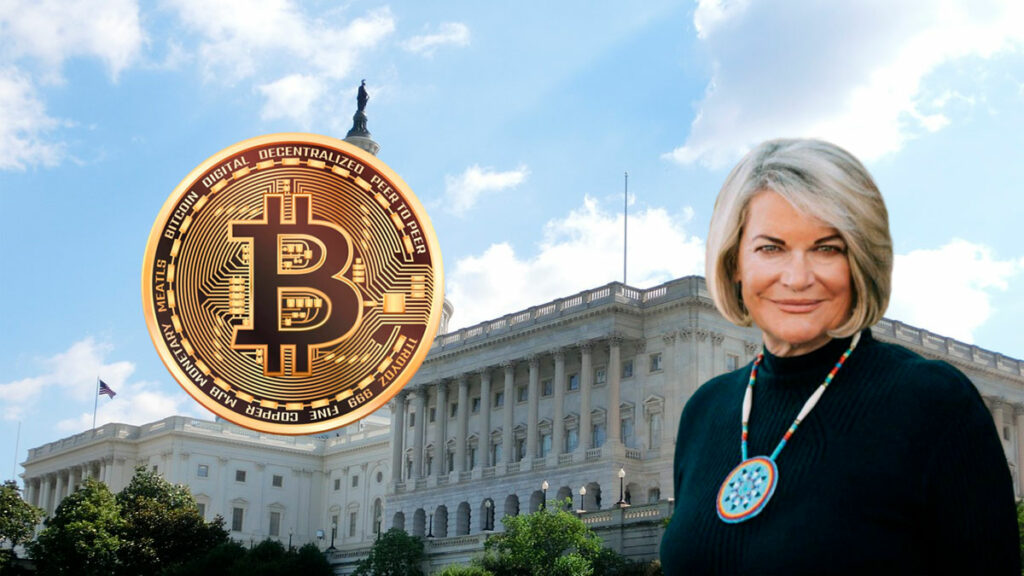TL;DR
- The BITCOIN Act: Senator Lummis introduced the Boosting Innovation, Technology, and Competitiveness through Optimized Investment Nationwide (BITCOIN) Act.
- Decentralized Approach: The BITCOIN Act proposes a network of secure Bitcoin vaults managed by the US Department of Treasury. These vaults would provide top-tier physical and cybersecurity protection for the nation’s Bitcoin assets.
- Challenges and Vision: Despite Senator Lummis’ endorsement, Bitcoin’s price hasn’t significantly risen. Critics argue that the proposed $70 billion investment is insufficient given the $34 trillion US debt.
Senator Cynthia Lummis (R-WY) has recently introduced the Boosting Innovation, Technology, and Competitiveness through Optimized Investment Nationwide (BITCOIN) Act, a groundbreaking bill aimed at establishing a strategic Bitcoin reserve for the United States.
Drawing inspiration from strategies commonly used for commodities like oil and gold, this legislation seeks to position the US as a leader in financial innovation.
The BITCOIN Act: A Decentralized Approach
The BITCOIN Act aims to establish a secure network of Bitcoin vaults, managed by the US Department of Treasury, to provide top-notch physical and cybersecurity protection for the country’s Bitcoin assets.
By adopting a similar approach to gold reserves, the bill calls for the acquisition of 1 million Bitcoin units, representing approximately 5% of the global supply.
Funding and Individual Rights
To fund this ambitious project, the BITCOIN Act suggests reallocating existing resources from the Federal Reserve System and the Treasury Department.
Importantly, the bill emphasizes the self-custody rights of private Bitcoin holders, ensuring that the strategic reserve does not infringe upon individual financial freedoms.

Challenges and Criticisms
Despite Senator Lummis’ endorsement, the price of Bitcoin has not seen a significant rise. As of the latest data, Bitcoin is trading at around $64,700, down by approximately 3% in the past 24 hours.
Critics argue that the proposed $70 billion investment in Bitcoin is insufficient given the $34 trillion US debt. Well-known author Paul Vigna has expressed doubts about the bill’s effectiveness.
A Landmark Event
Despite this, the passing of the BITCOIN Act signifies a monumental occasion in the history of US lawmaking. It showcases a courageous move towards incorporating digital assets into the country’s financial plans.
As the bill progresses through the legislative process, it is likely to ignite extensive debate among policymakers and economic experts, shedding light on varied perspectives regarding Bitcoin’s role in government finance strategies.
The Next Financial Frontier
Senator Lummis envisions the BITCOIN Act as the US equivalent of the Louisiana Purchase, a pivotal moment that will shape the country’s financial future. By creating a strategic Bitcoin reserve, the US aims to bolster its balance sheet and transparently manage federal Bitcoin holdings.
The legislation specifically outlines the establishment of a decentralized network of secure Bitcoin vaults, ensuring the highest levels of physical and cybersecurity.
In summary, Senator Lummis’ proposal reflects the growing recognition of Bitcoin’s importance in the global financial landscape. As the US takes this significant step, it sets the stage for further exploration of digital assets in government financial strategies.










